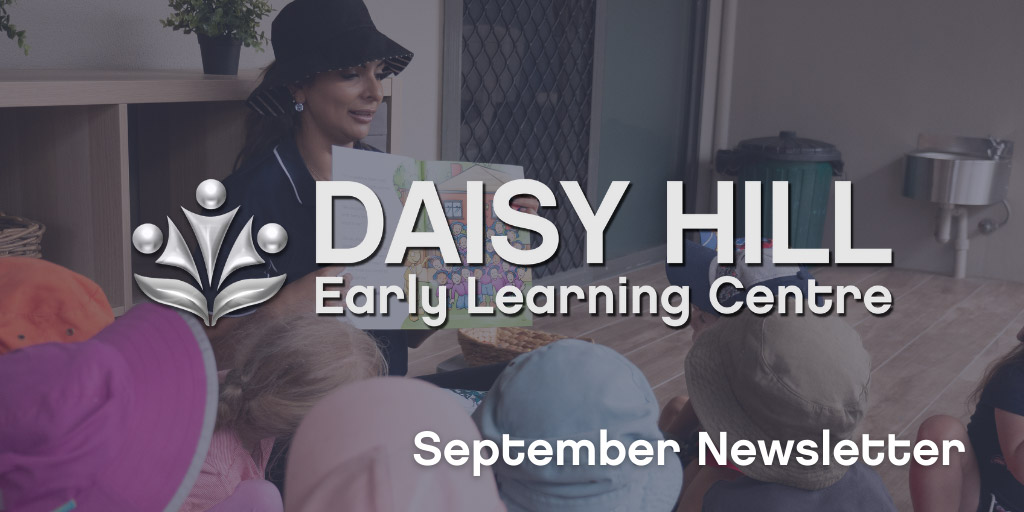Hello everyone from our Daisy Hill Early Learning Centre!
From The Office
Another great month. This year is just flying by, I cannot believe that it is nearly October! This must mean we’re just having too much fun.
If possible, Like us on Facebook to stay up to date with current centre news and information.
We need your feedback. Please email the centre with any ideas, suggestions or queries. We want to be the best and can only do so with your help daisyhill@kal.net.au
Sustainable Practices in Childcare
What is Sustainability?
Sustainability is “environment education”. Learning about the environment and how natural systems function. It’s everything that we need for our survival and well being relating directly to our natural environment.
Sustainable Education
As educators, we need to include education about and for the environment which may include:
As Educator we will:
- Engage children in discussions about sustainable practices. Such as noticing how a garbage bin is full, how food and scraps are left over after meal times etc.
- Encourage children to participate in a recycling program (recycling bins for cardboard, plastic and paper) or involve them in developing new strategies for recycling materials (using donated materials for art n crafts or donating materials to council clean ups etc.)
- For older children, environmental issues such as drought or daily weather reports including updates on air quality and pollution levels should be discussed during morning group time or and a chart to record these findings should be made as visuals within the room.
- For Preschoolers, choose “Energy Savers” – responsible for noticing lights, fans and other appliances left on when not in use. Likewise, choose ‘Water Savers” – responsible for noticing taps left on and other wasted water.
Centres, set up displays of sustainability messages that can be easily seen by families. Include locally relevant issues and information (local plants and wildlife, local bin colours and recycling systems et
Educators and children work together to learn about the environment and promote sustainable use of resources and develop and implement sustainable practices (Element 3.3.1 – NQS).
Sustainable Practices in Childcare
The NQS states that services take an active role in caring for its environment and contributes to a sustainable future (standard 3.3). One of the ways this is achieved is by minimising waste, reducing energy and water consumption and using fewer toxins. Here are some ideas to ensure sustainable practices are embedded in service operations:
The sensory nature of playdough allows children to be naturally curious and explore the world around them using their senses. The soft properties of play dough make it fun for investigation and exploration as well.
It is very beneficial for fine motor development and strengthening little fingers, hands and wrists, this makes them ready for pencil and scissor control later on. Each one of these different actions aids fine motor development in a different way, not to mention hand-eye coordination and general concentration.
As a tactile play, play dough can be squashed, squeezed, rolled, flattened, chopped, cut, and poked. These words can be used as the baby manipulates the play dough thus expanding their vocabulary. Asking questions leads to listening, although there may not be a coherent response. Math concepts are developed when they learn how to make shapes and different sizes.
Our playdough recipe:
- 1 cup baby cereal
- 1 cup cornflour
- ½ cup warm water
- 3 tbsp coconut oil
- Food colour
- Mix well.
- Store in a ziplock bag in the fridge for a week






